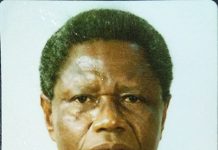In 2008, Kenya introduced Free Day Secondary Education (FDSE) under President Mwai Kibaki. This policy is Ghana’s equivalent of the ‘embattled’ Free Senior High School, FSHS.
Critics and well-meaning Kenyans made constructive criticisms about the policy but were branded traitors by the regime which was bent on implementing same at all cost.
Yah, it came into full force fraught with a lot of challenges, including but not limited to congested classrooms, lack of textbooks, funding, to mention, but a few.
I need hardly state here that the Gen Zs or whatever they are called and or termed, are products thereof.
Fast forward, NPP in its campaign trail prior to the 2016 Presidential and Parliamentary elections, made Free Secondary education a key component of their manifesto amid an array of campaign promises.
Critics and well-meaning Ghanaians of this policy including the teaching fraternity, who were supposed to be the backbone of the policy, went on their knees, pleading that we go to Kenya to have first-hand information and insight therein and learn the pros and cons in their implementation to enable us fine tune ours to mitigate the challenges as faced by the Kenyans.
This was not only brushed aside by the NPP, but the critics were called names and equated to Nation’s wreckers – at least we know the actual Nation’s wreckers as of date. Recall the then Vice Presidential Candidate, Dr Bawumia, posing the question – WHOSE CHILD MUST STAY HOME? – Ɛne yɛn nnɛ!!
Currently on the educational front is the vexed question of whether or not, mother tongue must be used as the medium of instructions at the foundational level in schools.
Proponents argue that same will, sorry ooo, SHALL, strengthen understanding and retention among young learners, whatever that means.
Have heard critics of this policy including a man in cloak, ‘rubbishing’ the policy. It was a delight listening to him thereon, analytically analyzing the evolution of languages. He posed one interesting question – where is the Latin language in the scheme of languages presently?
Others have argued that the cosmopolitan nature of our society does not make the policy feasible and, again, that it shall invoke more problems than anticipated.
A school of thought is also of the conviction that, the education front is merged in a lot of challenges to merit discussing this topic at this hour.
Be as it may, fortunately for us, our next anglophone neighbour, Nigeria, who experimented with this mother -tongue policy for some three years has just announced the jettisoning thereof, citing very cogent reasons for same – In short, that it was a fallacy, yah, someone’s figment of imagination that the mother -tongue magic was a panacea.
I am not advocating that we copy blindly, the Nigeria concept, but believe it’s worthwhile interrogating the WHYS in the Nigerian situation and situating same in the Ghanaian context to assess its practicability. At least, we have the benefit of hindsight and must sieve through its merits and demerits to our advantage.
No merry go round this time round, for time won’t wait for us.
I am just waxing my way through the “idiosyncrasies” of teaching and learning, yah, an innocent by stander piercing through and piecing bits of history together to weigh in if l am making sense. Nothing More.
By Osei Kwabena, Esq., Elizabeth Street, Asante Effiduase
Editor’s note: Views expressed in this article do not represent that of The Chronicle
For more news, join The Chronicle Newspaper channel on WhatsApp: https://whatsapp.com/channel/0029VbBSs55E50UqNPvSOm2z










